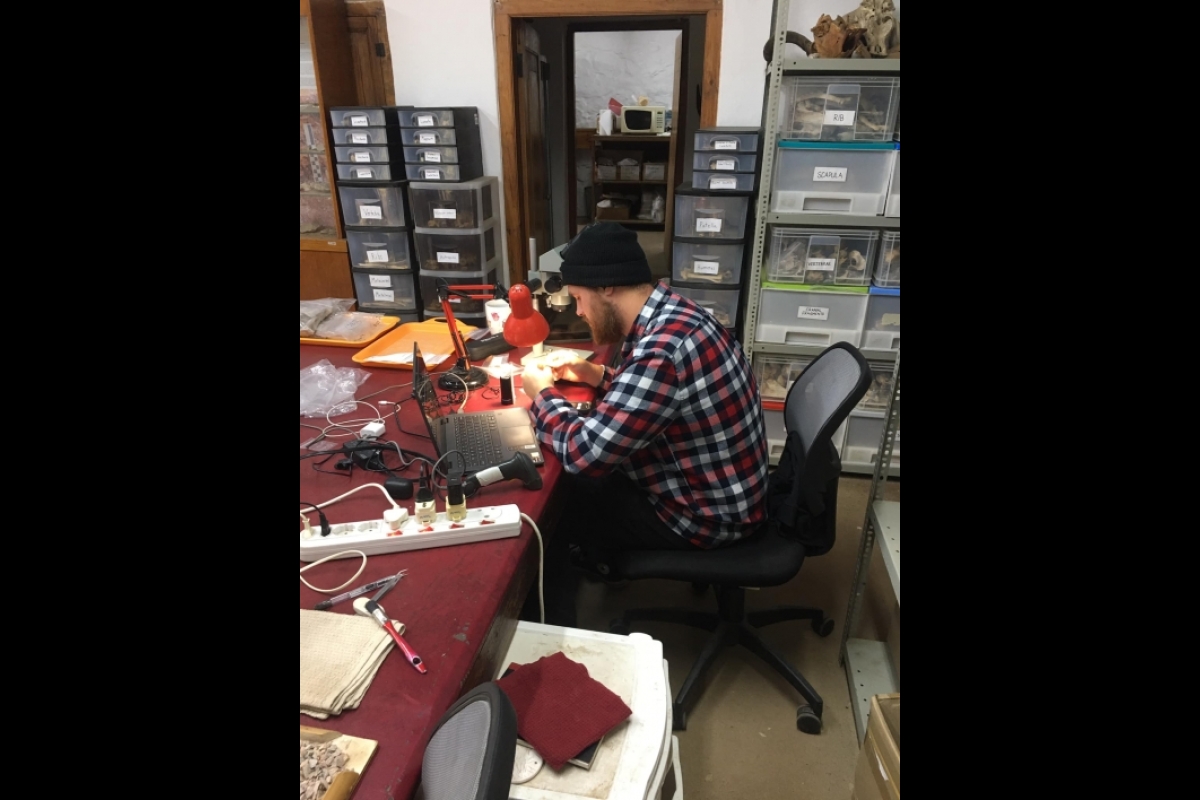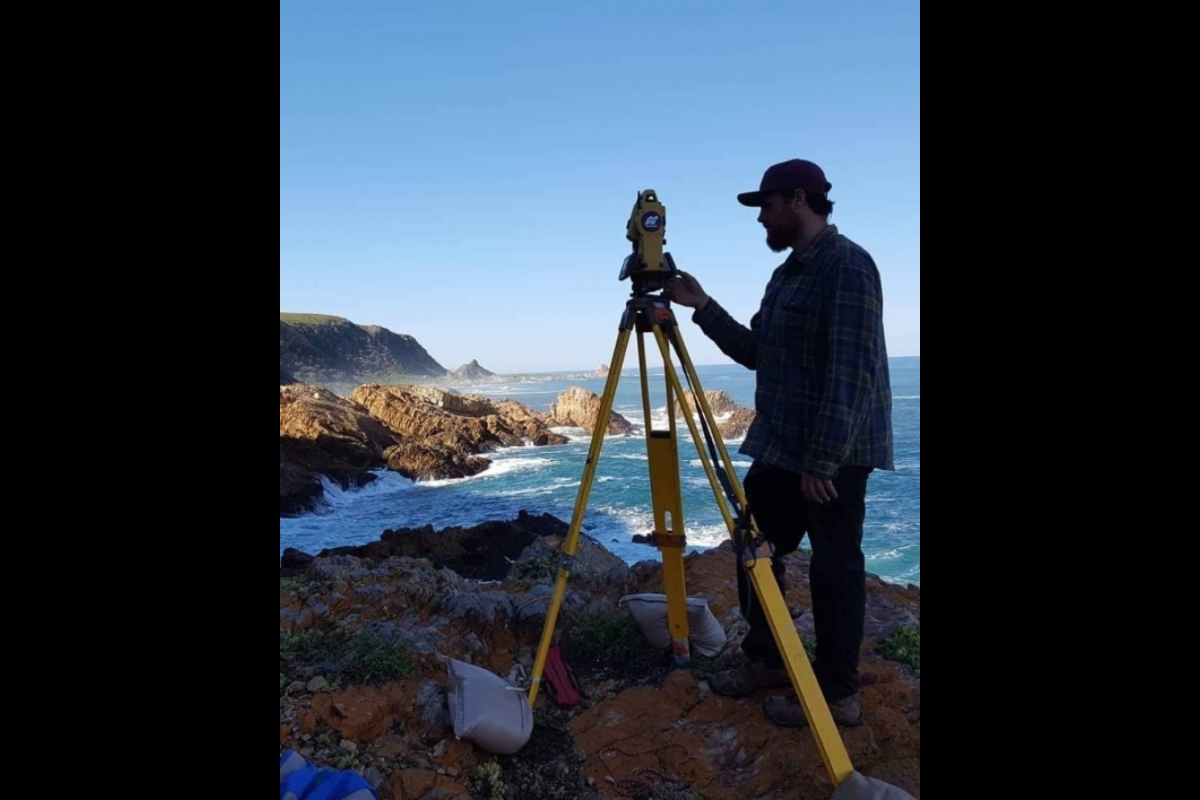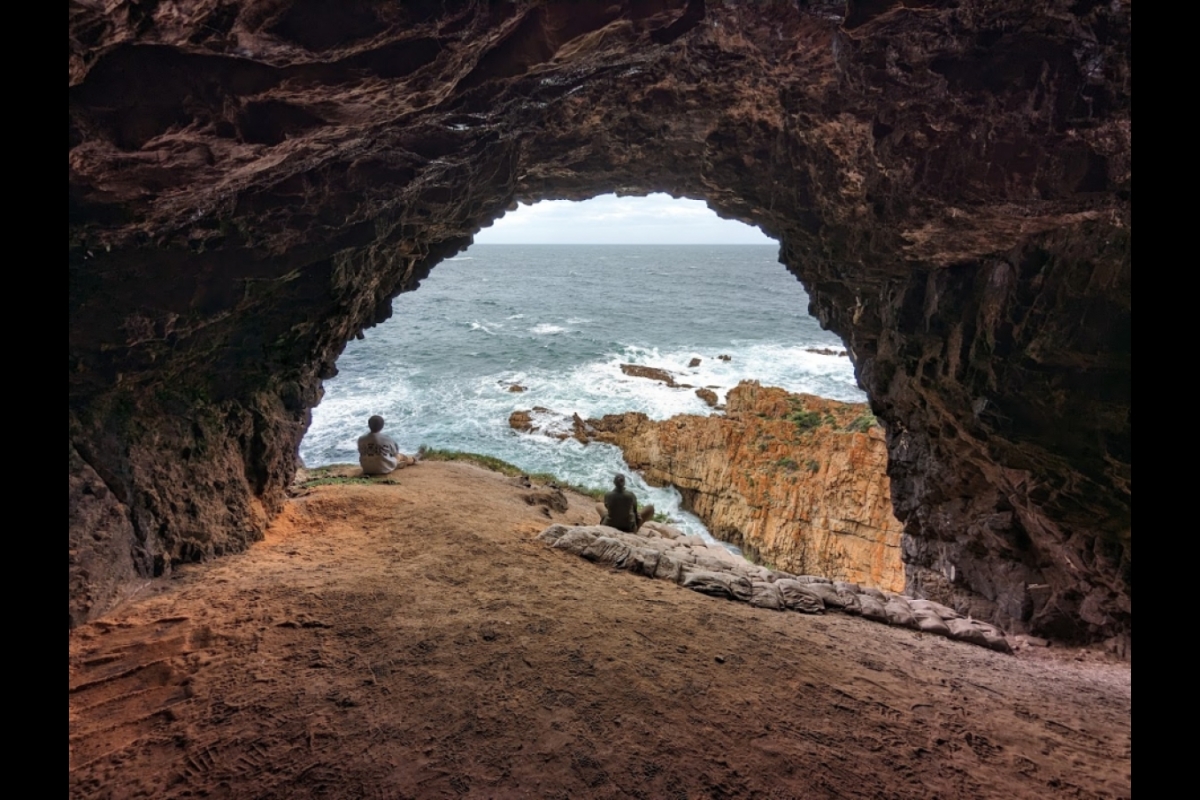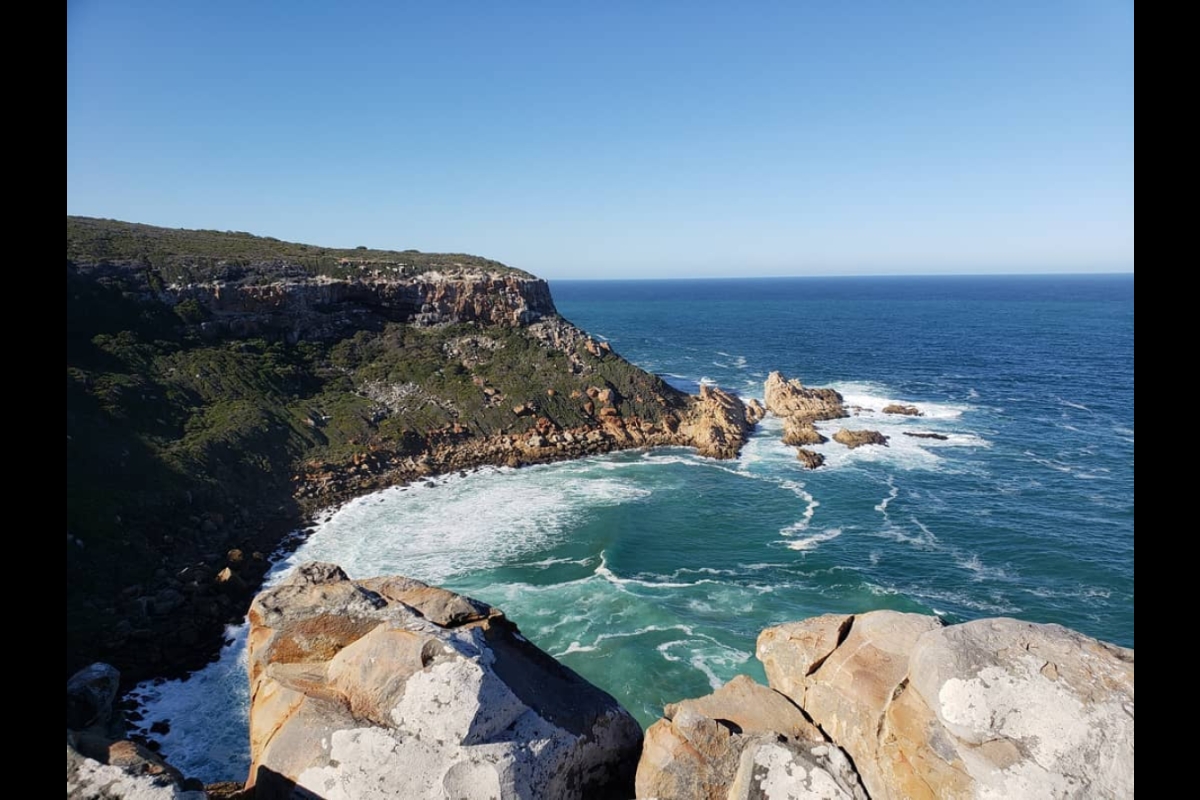Paleoanthropology PhD candidate receives notable NSF grant

ASU PhD candidate John Murray riding a camel at Petra in Jordan. Photo courtesy John Murray
How did humans use heat to make their tools during the Middle Stone Age? John Murray, a PhD candidate at the School of Human Evolution and Social Change at Arizona State University, was recently awarded a prestigious grant from the National Science Foundation to help fund his research into this question.
“There are three proposed methods that scientists believe people in the Middle Stone Age may have used to heat the silcrete: Put it directly in the fire, put it under a pile of embers, or put it in a sand bath where you would dig a pit, cover it in sand then build a fire on top of that,” Murray said.
The $30,000 dollar Doctoral Dissertation Research Improvement Grant (DDRIG) will allow Murray to do another season of fieldwork on the coast of South Africa. There, he will analyze and work to distinguish possible methods early modern humans used to heat-treat silcrete and make tools from 162,000 to 50,000 years ago.
“The reason why South Africa is a good location is because it actually has the earliest evidence for intentional heat treatment at 162,000 years ago at Pinnacle Point 13B,” Murray said.
He has been interested in paleoanthropology since obtaining his master’s degree in anthropology, for which he studied early modern humans and Neanderthals in Jordan. He then became interested in doing further research on the difference between Neanderthals and modern human behavior.
Murray knew he wanted to work toward his PhD at ASU and with Foundation Professor Curtis Marean. Marean is world-renowned for his work in the origins of modern humans at his site, Pinnacle Point. Murray said Marean has been an amazing mentor.
“John received the best reviews for a DDRIG NSF grant that I have ever seen,” Marean said. “That did not surprise me because it was a perfectly executed grant proposal. John has been a great pleasure to work with. He has many strong characteristics, but one I will mention is he has developed an excellent problem-solving psychology, and that has clearly served him well.”
Along with this research, Murray teaches stone tool-making to undergraduate students and does extensive work in ASU’s Ancient Technology Lab.
Murray also budgeted to fund travel for two undergraduate field assistants for the three months in South Africa. One student will be from ASU and the other from South Africa. He will train the students in lithic analysis and artifact curation and data management.
“I am most excited about being awarded the NSF because it gives me the opportunity to provide experience and hands-on training for two undergraduate students,” Murray said.
“Undergraduate mentorship has been one of the most rewarding things about being a School of Human Evolution and Social Change graduate student, and I’m happy that I will be able to continue this with the NSF, particularly because it will provide a fully funded overseas experience for an ASU student and also because it will provide training for a South African researcher that will hopefully give them the experience they need to continue working as a professional researcher and scientist within their home country.”
More Arts, humanities and education

Pen Project helps unlock writing talent for incarcerated writers
It’s a typical Monday afternoon and Lance Graham is on his way to the Arizona State Prison in Goodyear.It’s a familiar scene.…

Phoenix civil rights activists highlighted in ASU professor’s latest book
As Phoenix began to grow following WWII, residents from other parts of the country moving to the area often brought with them Jim…

Happy mistake: Computer error brings ASU Online, on-campus students together to break new ground in research
Every Thursday, a large group of students gathers in the Teotihuacan Research Laboratory (TeoLab) in the basement of the…






